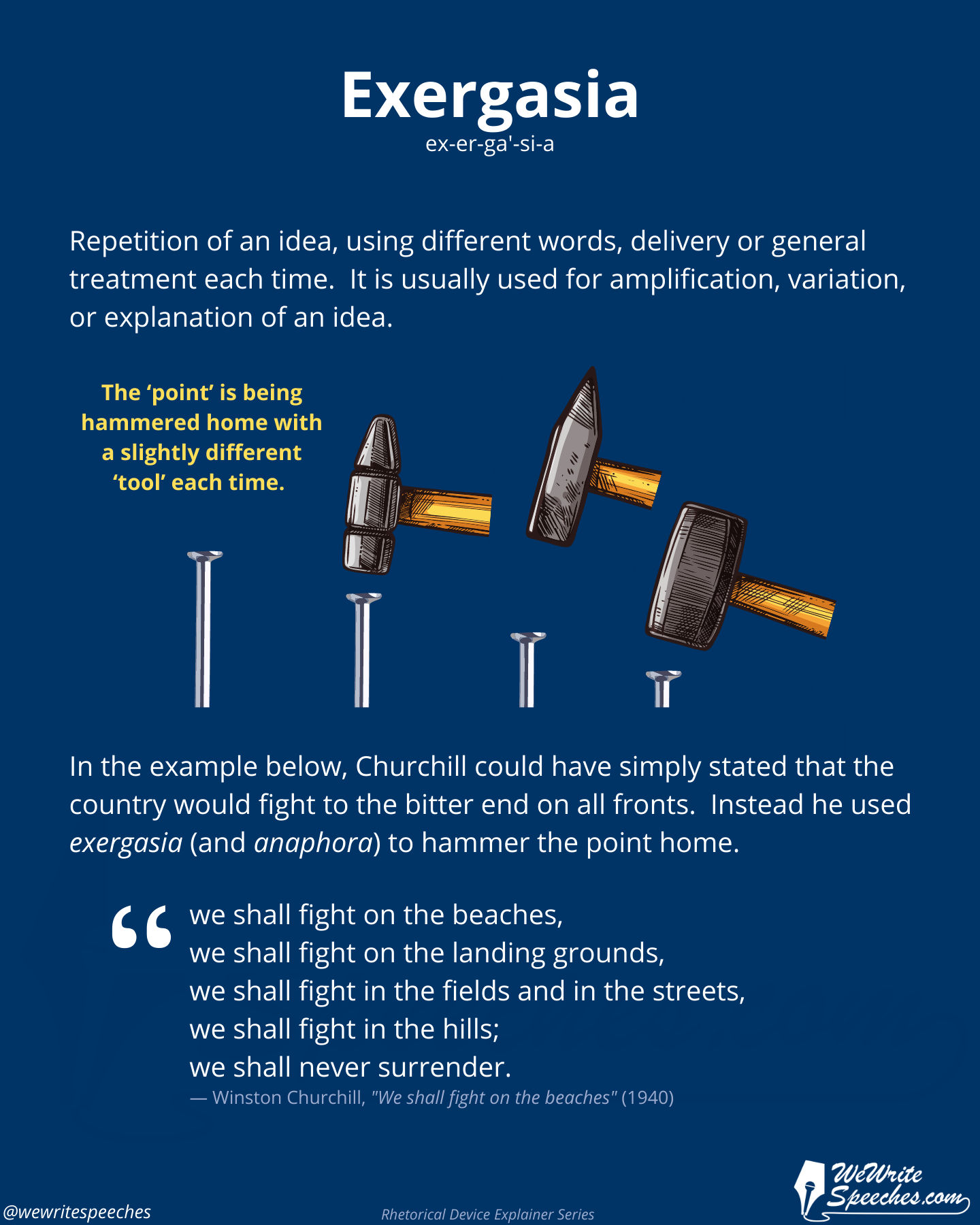Rhetorical Device: Exergasia
The rhetorical device of exergasia is is a form of repetition and parallelism that uses different words, delivery, or treatment to make a point. By repeating a sentiment in different ways, exergasia can help to strengthen an argument and create a more powerful impact on the audience. The term exergasia comes from Greek; the Romans called it expolitio.
Similarly when Churchill was speaking to the House of Commons on the last day of the successful Dunkirk evacuation, he used multiple ways of saying essentially the same thing: 'we will fight on all fronts'. Doing it as he did was much more powerful and memorable than if he had simply stated "We shall fight on all fronts, We shall never surrender".
Examples
Each of the three highlighted clauses in the following Bible verse repeats the same idea using different words:Hear the right, O LORD, attend unto my cry, give ear unto my prayer... Bible, "Psalm 17:1"
Similarly when Churchill was speaking to the House of Commons on the last day of the successful Dunkirk evacuation, he used multiple ways of saying essentially the same thing: 'we will fight on all fronts'. Doing it as he did was much more powerful and memorable than if he had simply stated "We shall fight on all fronts, We shall never surrender".
We shall go on to the end, we shall fight in France, we shall fight on the seas and oceans, we shall fight with growing confidence and growing strength in the air, we shall defend our Island, whatever the cost may be, we shall fight on the beaches, we shall fight on the landing grounds, we shall fight in the fields and in the streets, we shall fight in the hills; we shall never surrender. Winston Churchill, "We shall fight on the beaches" (4 June 1940)

Now is the time to make real the promises of democracy;
now is the time to rise from the dark and desolate valley of segregation to the sunlit path of racial justice;
now is the time to lift our nation from the quicksands of racial injustice to the solid rock of brotherhood;
now is the time to make justice a reality for all God’s children Martin Luther King. Jr, "I Have a Dream" (28 August 1963)
In this example President Reagan wants to drive home his message that the American people should reject the current (Carter) Administration, so he compounds three rhetorical questions. Each of the three questions is another way of saying "No to the current Administration". It was evidently an effective technique.
Can anyone look at the record of this Administration and say, "Well done"?
Can anyone compare the state of our economy when the Carter Administration took office with where we are today and say, "Keep up the good work"?
Can anyone look at our reduced standing in the world today and say, "Let's have four more years of this"? Ronald Reagan, "1980 Republican National Convention Acceptance Address" (17 July 1980)
